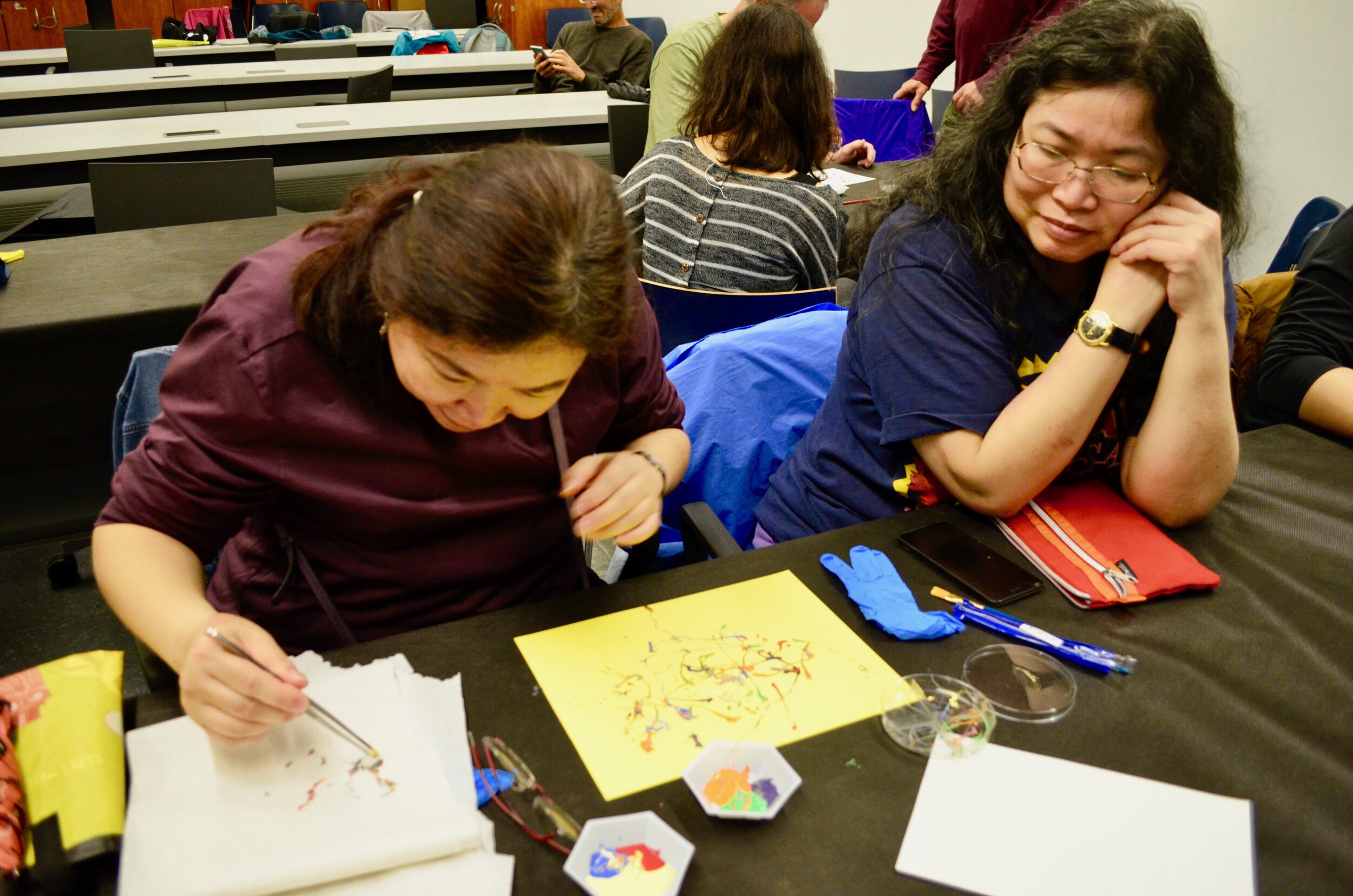On Sunday, October 27, the MSNH joined forensic entomologist, Dr. Jen Rosati, at John Jay College of Criminal Justice for a spooky Halloween event! Dr. Rosati began the event with a short lecture detailing what forensic entomology is and how the larval stages of insects can help solve cases. Once her lecture was finished we began the trademarked activity known as Maggot Art™. Maggot Art is an eco-friendly artistic expression activity using the larval form of blow flies. During the third instar stage of development, blow fly larvae begin to “wander” in search of a suitable place to pupate. At this stage, the larvae can be harvested, dipped in non-toxic acrylic based paint and used to create beautiful works of art. During the event, participants grabbed a selection of maggots and paints and let these little babes express themselves by crawling across the canvas with paint. By the end of it, we were left with a series of colorful artwork all thanks to the wandering instinct in our maggots. By the end of the event, the maggots were left unharmed and returned to their maggot buckets where they were allowed to continue their life cycle and pupate into flies.
To view more photos from this event, visit our gallery. All photo credit goes to Stephanie Loria and Valentin Ehrenthal.
Dr. Jennifer Rosati is an Entomologist and Assistant Professor in the Department of Sciences at John Jay College of Criminal Justice in New York, NY. She obtained her B.Sc. Degree in Wildlife Biology at the University of Guelph, in Guelph, ON and completed her Ph.D. in Forensic Entomology in 2014 from the University of Windsor, in Windsor, ON. Her Ph.D. work focused on understanding the colonization behavior of blow flies, specifically looking at the priority effects in blow flies during the adult and larval stages of development. Her Ph.D. work also examined the effects of habitat and season on the successional patterns of insects in the Southwestern Ontario region. Currently, her research interests focus on the ecological mechanisms that drive successional patterns during decomposition and the importance of species interactions during decomposition. Research in the Rosati Lab is focused on improving the current understanding of the various factors that play a role in the colonization behavior of many forensically related insect species.



